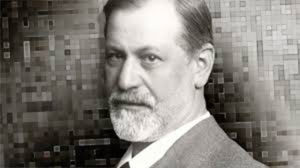Un Déjà Vu proustien revisité
Résumé
La psychopathologie du Déjà vu est reconsidérée à la lumière du concept de « régrédience » tel que César et Sarà Botella l’ont élaboré. Pickford (1944), dans une perspective strictement freudienne, a analysé un épisode de Déjà vu de A la recherche du temps perdu de Proust en insistant sur les éléments relevant du complexe filial de castration. Nous montrons que cet épisode proustien de Déjà vu peut en fait être compris comme une manifestation directe de la régrédience, tout comme un témoignage de la propension à la satisfaction hallucinatoire du désir. Une confusion entre les mondes interne et externe est profondément enracinée dans La recherche ; sa tonalité incestueuse empêche le narrateur d’élaborer un monde psychique dans lequel la mémoire est différente de la perception hallucinatoire. La nécessaire frustration imposée par la triangulation paternelle y fait défaut, empêchant ainsi une structuration réussie du complexe d’Œdipe (cette structuration garantit à son tour une distinction structurelle entre le perçu et le représenté). Différents passages de La Recherche reflètent un effort désespéré pour trouver un père capable de s’interposer entre le sujet et un objet maternel qui menace de l’engloutir.
Samenvatting
De psychopathologie van het fenomeen "Déjà vu" wordt beschouwd in het licht van het concept van « régrédience » zoals César en Sarà Botella dit besproken hebben. Pickford (1944) heeft een déjà vu-episode uit A la recherche du temps perdu van Proust geanalyseerd vanuit strikt freudiaans perspectief : hij insisteerde daarbij op de elementen die verwijzen naar het castratiecomplex bij de zoon ten opzichte van vader. We tonen in deze tekst aan dat deze proustiaanse episode van déjà vu in feite kan begrepen worden als een directe manifestatie van “régrédience”, in de zin van een aanwijzing voor de neiging tot het hallucinatoir vervullen van een wens. Een verwarring tussen interne en externe wereld zit diep verankerd in La recherche, de incestueuse tonaliteit verhindert de verteller een psychische wereld te beschrijven waar de herinnering verschilt van de hallucinatoire waarneming. De noodzakelijke frustratie die door de driehoeksrelatie met vader wordt geïmponeerd, voldoet hier niet. Op die manier wordt een succesvolle structurering van het Oedipus-complex verhinderd (structurering die op zijn beurt een structureel onderscheid tussen het waargenomene en het voorgestelde garandeert). Verschillende passages uit La recherche weerspiegelen een wanhopige poging om een vader te vinden die zich zou kunnen plaatsen tussen het subject en een materneel object wat het dreigt op te slokken
Summary
The psychopathology of Déjà vu is reconsidered in light of the notion of « regredience » as it has been elaborated by Sara and Cesar Botella. Pickford, (1944) using a strictly Freudian point of view, analyzed an episode of Déjà vu from Proust’s A la recherche du temps perdu, wherein he emphasized elements related to the castration and filial complex. We develop the idea that this Proustien Déjà vu can in fact be understood as a direct manifestation of regredience as well as the illustrating the propensity towards the hallucinatory satisfaction of desire. A confusion between internal and external reality is deeply rooted in La recherche ; its incestuous tonality prevents the narrator from structuring a psychic world wherein memory is distinct from hallucinatory perception. The necessary frustration imposed by paternal triangulation is absent, thus preventing a successful structuring of the oedipal complex. It is this structuring of the oedipal complex which in turn guarantees a structured distinction between that which is perceived, and that which is represented. Different passages from the Recherche reflect the desperate effort to find a father capable of imposing himself between the subject and the maternal object who threatens to engulf him.





